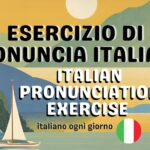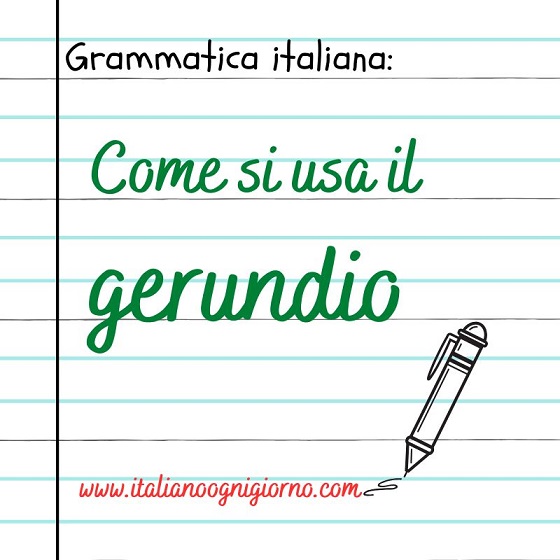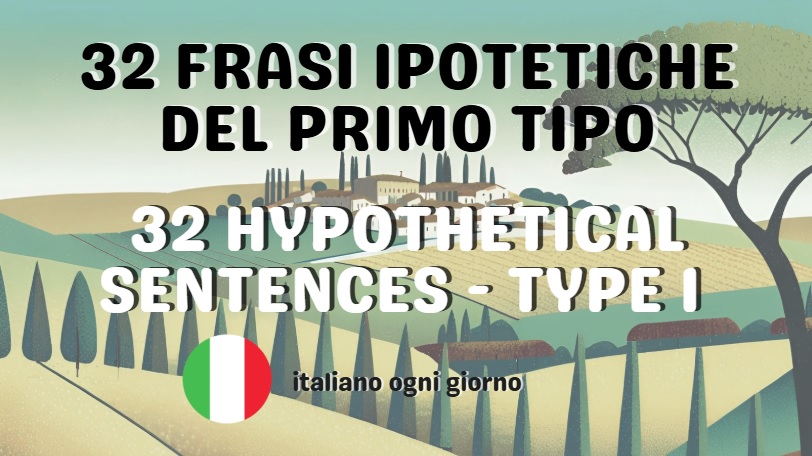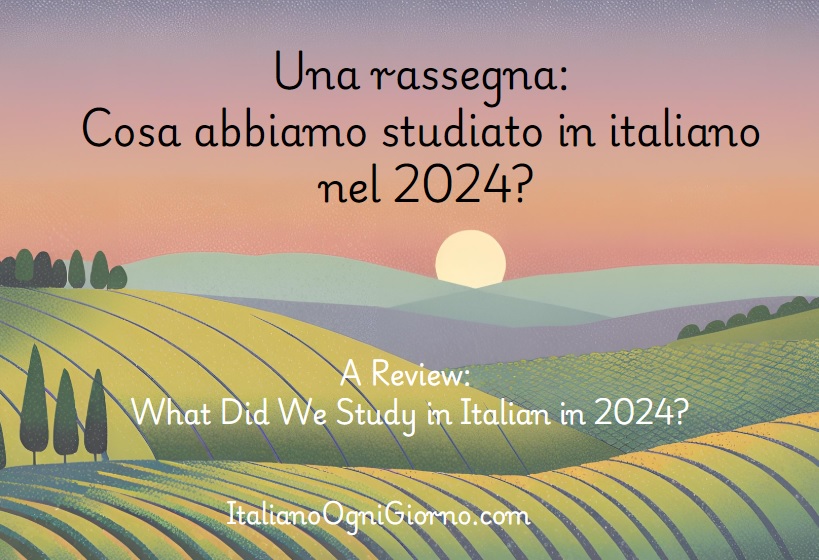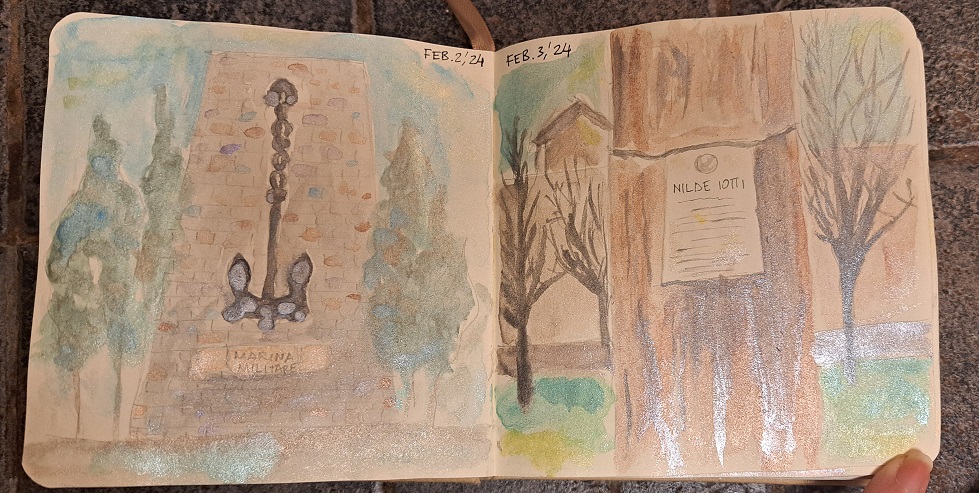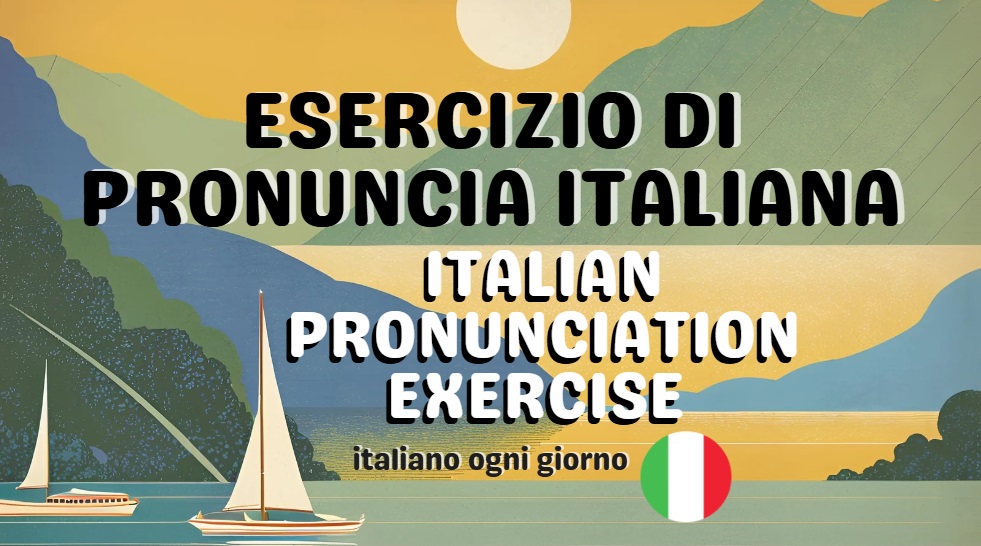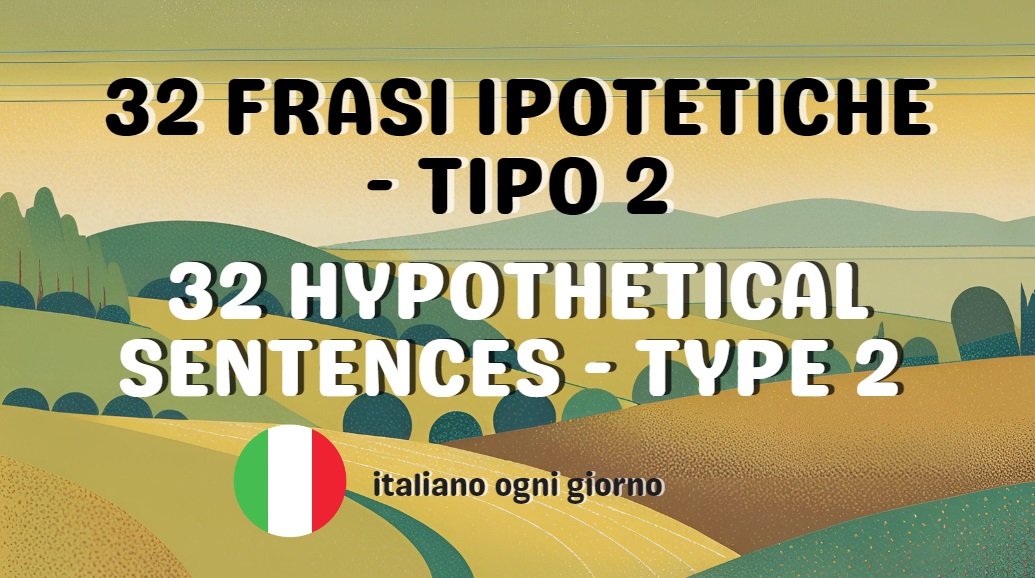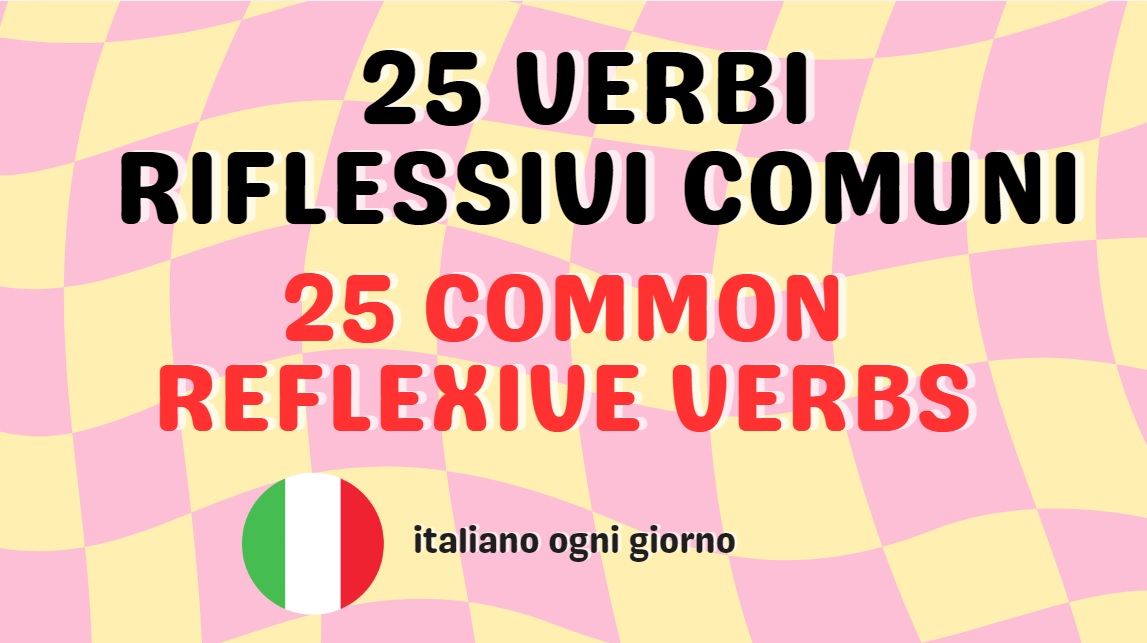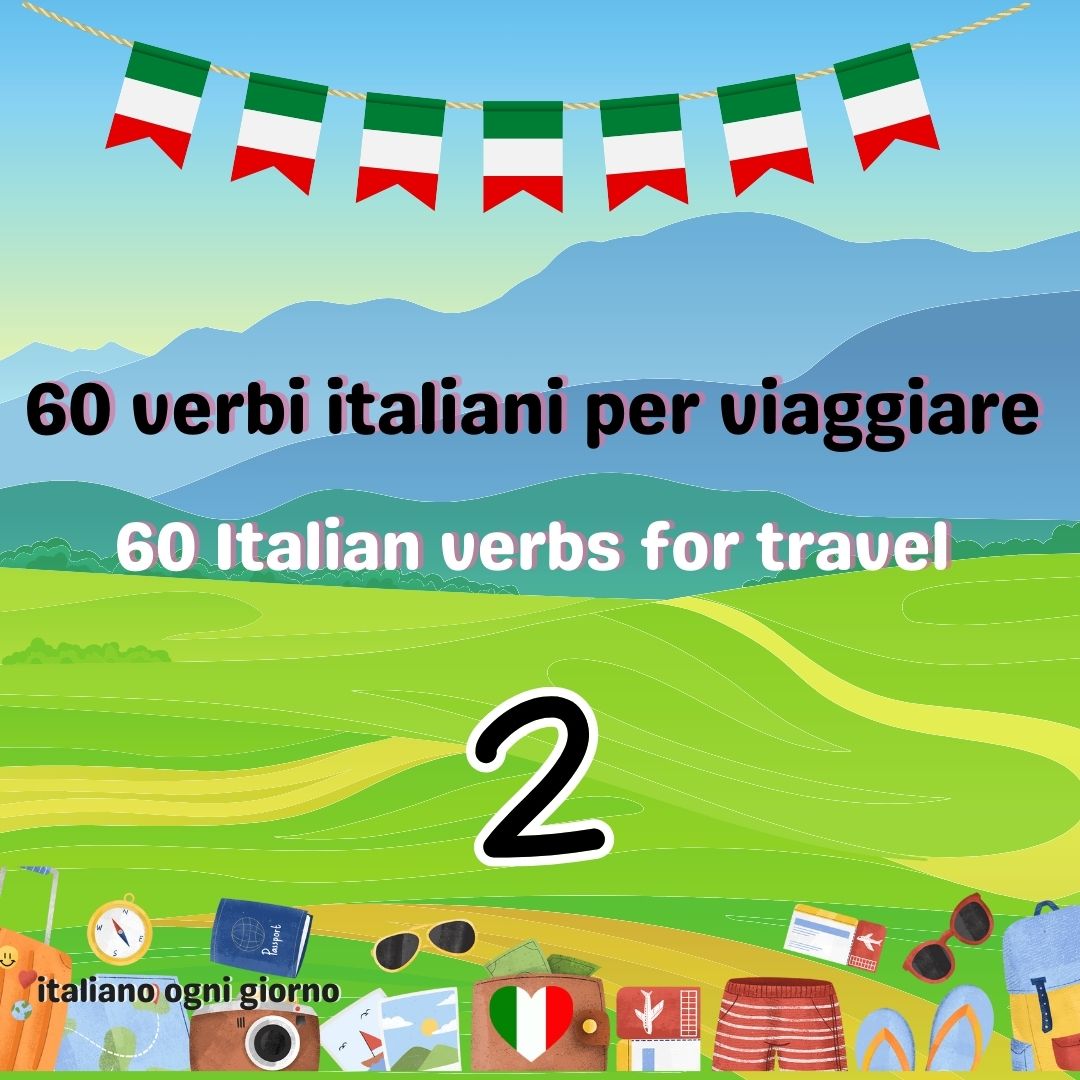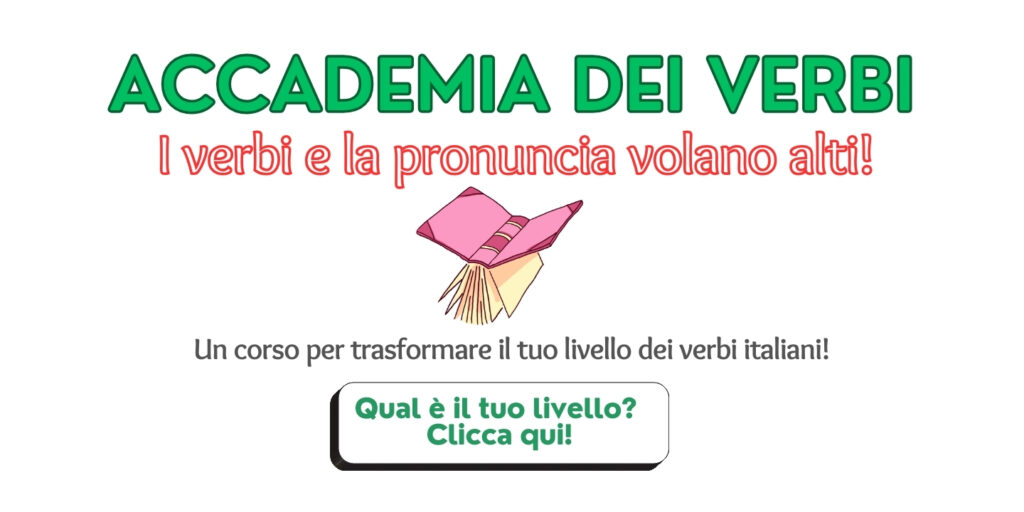(English follows)
Introduzione
Amando le lingue, e studiando la grammatica, trovo affascinante tutte le differenze e le similitudini. Cosa sto dicendo? Ah, solo che il gerundio ha delle regole in italiano che non ha in inglese per esempio! Stavo parlando di questo ad un’amico l’altro giorno e allora ne ho scritto una spiegazione semplice. Eccola e buono studio!
Il gerundio è un modo del verbo che a volte viene tradotto in italiano da un’altra lingua in modo errato. Spiego qui in modo chiaro e semplice come si usa in italiano.
Il gerundio esprime un’azione della frase dipendente in relazione al verbo della frase indipendente /principale. Il soggetto delle due frasi è uguale.
Esempio:
Leggendo (frase dipendente), ho imparato nuove parole. (frase indipendente)
Il gerundio ha 3 tipi di relazioni:
• causa
Cucinando a casa, mangio salutare.
(Dato che cucino a casa, mangio salutare)
• tempo
Andando al negozio, ho incontrato Sara.
(Mentre andavo al negozio, ho incontrato Sara)
• modo
Disegno usando le matite colorate.
(Disegno (in che modo?) con le matite colorate)
Forma
Per le 3 coniugazione si forma nel seguente modo:
-are -> -ando (parlando, lavorando,..)
-ere -> -endo (scrivendo, mettendo,..)
-ire -> -endo (partendo, dormendo,..)
Il gerundio ha 2 tempi:
• tempo semplice (formato da una sola parola), che indica un’azione contemporanea a quella della frase principale.
presente: Maria, camminando con il cane, ha trovato un portafoglio.
• tempo composto (formato da due parole), che indica un’azione anteriore (avvenuta prima) a quella della frase principale
passato: Maria, avendo camminando con il cane, ha fatto molta strada.
L’uso
Oltre a quelli visti finora, il gerundio si usa molto spesso preceduto dal verbo stare (all’indicativo presente o imperfetto) per indicare un’azione che è in svolgimento in questo momento. Questa forma è detta perifrastica:
sto mangiando, stiamo studiando, stavano salendo,…
Esercizio
Trasforma al gerundio presente le espressioni in neretto delle seguenti frasi.
1. Dato che vengo a piedi, mi mette le scarpe comode.
. . . . . . . . . . . . . . . . . . . . . . . . . . . . . . . . . . . . . . . . . . . . . . . . . .
2. Mentre trasportava la scatola, l’ha fatta cadere .
. . . . . . . . . . . . . . . . . . . . . . . . . . . . . . . . . . . . . . . . . . . . . . . . . .
3. Mi diverto tanto, quando ballo.
. . . . . . . . . . . . . . . . . . . . . . . . . . . . . . . . . . . . . . . . . . . . . . . . . .
4. Mentre pensavamo alle vacanze, eravamo felici.
. . . . . . . . . . . . . . . . . . . . . . . . . . . . . . . . . . . . . . . . . . . . . . . . . .
Troverai questa lezione nel formato PDF da scaricare insieme ad altri esercizi e le soluzioni.
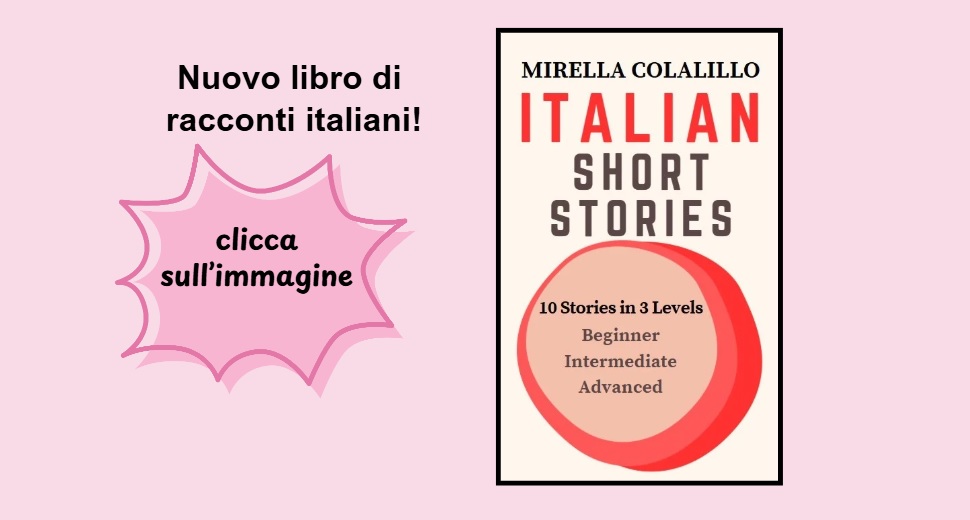
(English)
Introduction
Loving languages, and studying grammar, I find all the differences and similarities fascinating. What am I saying? Oh, just that the gerund has rules in Italian that it doesn’t have in English for example! I was talking about this to a friend the other day and so I wrote a simple explanation. Here it is, and happy studying!
The gerund is a verb form that is sometimes translated incorrectly into Italian from another language. I’ll explain here clearly and simply how it is used in Italian.
The gerund expresses an action of the dependent clause in relation to the verb of the independent/main clause. The subject of the two sentences is the same.
Example:
Leggendo (dependent clause), ho imparato nuove parole. (independent clause)
The gerund has 3 types of relations:
• cause
Cucinando a casa, mangio salutare.
(Because I cook at home, I eat healthy)
• time
Andando al negozio, ho incontrato Sara.
(As I was going to the store, I met Sara)
• mode
Disegno usando le matite colorate.
(I draw (how?) with colored pencils)
Form
For the 3 conjugations it’s formed in the following way:
-are -> -ando (parlando, lavorando,..)
-ere -> -endo (scrivendo, mettendo,..)
-ire -> -endo (partendo, dormendo,..)
The gerund has 2 tenses:
• simple tense (consisting of a single word), which indicates an action that is contemporary with that of the main sentence.
present: Maria, camminando con il cane, ha trovato un portafoglio.
• composed tense (formed by two words), which indicates an action prior to (happened before) that of the main sentence
past: Maria, avendo camminando con il cane, ha fatto molta strada.
Use
In addition to those seen so far, the gerund is very often used preceded by the verb stare (in the present or imperfect indicative) to indicate an action that is in progress at this moment. This form is called perifrastica:
sto mangiando, stiamo studiando, stavano salendo,…
Esercise
Change the expressions in bold in the following sentences into the present gerund.
1. Dato che vengo a piedi, mi mette le scarpe comode.
. . . . . . . . . . . . . . . . . . . . . . . . . . . . . . . . . . . . . . . . . . . . . . . . . .
2. Mentre trasportava la scatola, l’ha fatta cadere .
. . . . . . . . . . . . . . . . . . . . . . . . . . . . . . . . . . . . . . . . . . . . . . . . . .
3. Mi diverto tanto, quando ballo.
. . . . . . . . . . . . . . . . . . . . . . . . . . . . . . . . . . . . . . . . . . . . . . . . . .
4. Mentre pensavamo alle vacanze, eravamo felici.
. . . . . . . . . . . . . . . . . . . . . . . . . . . . . . . . . . . . . . . . . . . . . . . . . .
You will find this lesson in PDF format to download along with other exercises and solutions.
- Racconto italiano: La disdetta del frullato al cacao A2/B1

- Come si usa il gerundio

- Racconto italiano: La gatta sull’albero /A2

- Racconto italiano: Le scale al nuovo anno /B2

- 32 frasi ipotetiche del primo tipo in italiano

- Una rassegna: Cosa abbiamo studiato in italiano nel 2024?

- Racconto italiano: Un giorno perfettamente imperfetto /A2

- Racconto italiano: Le scale al nuovo anno /A1

- Esercizio di pronuncia italiana: 20 scioglilingua
